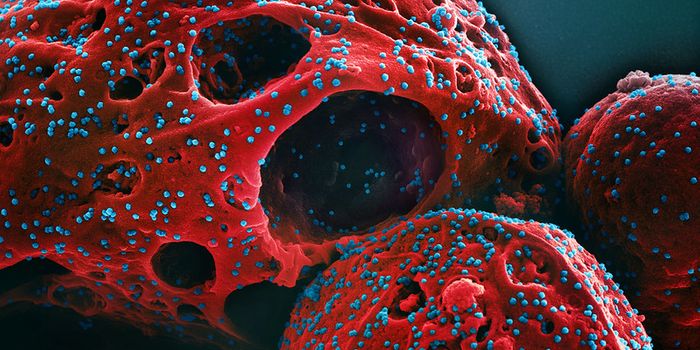A Possible Treatment Strategy for Familial Alzheimer's is ID'ed
Some cases of Alzheimers disease (AD) are known as Familial Alzheimer's disease because they are due to genetic mutations. So far, mutations in three genes, APP, PSEN1, and PSEN2 have been associated with familial AD. The disease burden is high in China, where an estimated 500,000 people have the disorder. An international team of researchers has now created a treatment approach that uses gene-editing in the brain to potentially reduce the symptoms of familial AD. This work, which was reported in Nature Biomedical Engineering, used a mouse model. The treatment strategy still has to be tested in humans.
Many diseases that trace back to genetic mutations might be treatable if the genomes of affected cells could be edited to carry the correct version of whatever gene is mutated. While there are now reliable gene-editing tools, it's still a challenge to reach the right cells in time to prevent or treat disease. Gene-editing technology has worked in the human eye, for example, an organ that is easy to access. But the brain is a particularly sensitive and protected part of the body.
In this study, the researchers utilized a system that can cross the blood-brain barrier to make edits in cells throughout the brain. They modified a non-pathogenic viral delivery system known as an adeno-associated virus to ferry CRISPR-Cas9 components across the blood brain barrier. One intravenous administration was able to achieve that result in an animal model. Genetic mutations associated with familial AD could be corrected, and symptoms of the disorder were relieved.
In mouse models, the levels of a protein called amyloid that's been associated with AD-linked neurodegeneration stayed low for six months after they'd been treated; the gene editing technique appeared to have lasting impacts in an animal with a typical lifespan of about two years. The researchers did not detect any side effects in these animals either.
“As the first demonstration of efficient brain-wide genome editing to alleviate Alzheimer’s disease pathology throughout the whole brain, this is really an exciting development,” said study leader Professor Nancy Ip, Vice-President for Research and Development at HKUST. “Our work is an important milestone for the use of genome editing in treating hereditary brain diseases, and contributes to the development of precision medicine for inherited forms of neurodegenerative diseases.”
More research will be needed to demonstrate that this is a safe and effective treatment for people.
Sources: Hong Kong University of Science and Technology (HKUST), Nature Biomedical Engineering









